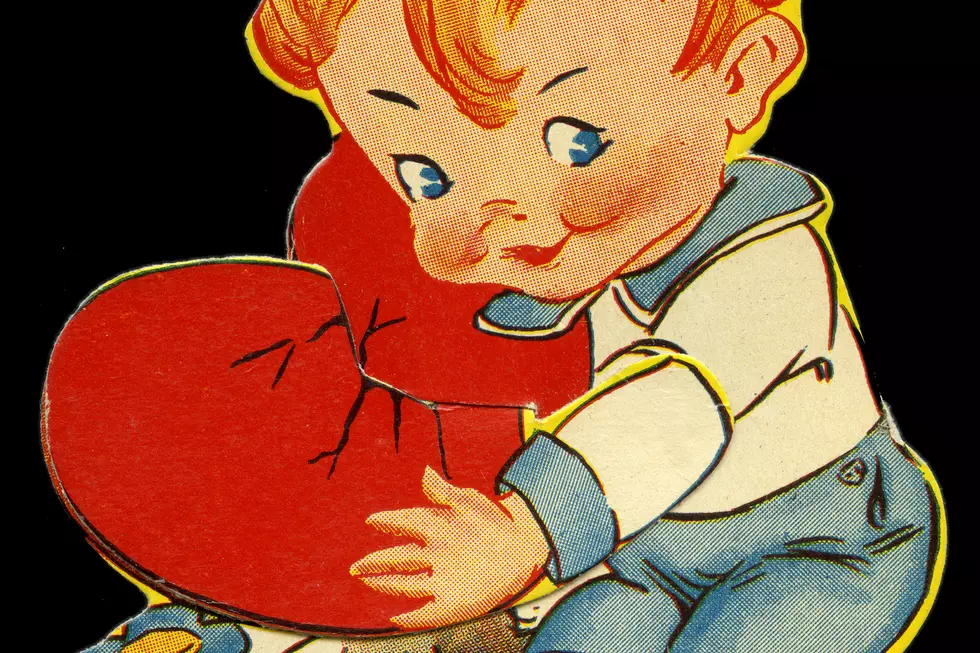
Foals Discuss ‘Hot, Sticky, Dirty’ Sound of New Album, ‘Holy Fire’
Maybe it’s just the effects of a cold gray winter in London, but Foals guitarist Jimmy Smith mentions warmth more than once when he gets on the phone with Diffuser.fm to talk about the band’s new album, ‘Holy Fire.’
The English dance-punk band had planned to make the album, its third, in Australia — “We had grand ideas of recording somewhere nice and hot,” Smith says — but ended up recording ‘Holy Fire’ in London instead with producers Flood and Alan Moulder.
Full of soaring, layered songs, it’s the chronological follow-up to their 2010 release ‘Total Life Forever,’ though Smith views the record as a broader stylistic statement for the band, which also includes Yannis Philippakis, Jack Bevan, Walter Gervers and Edwin Congreave.
“This album doesn’t really sound anything like the last one,” Smith says. The guitarist explains why, citing the influence of Delta blues and the importance of pre-production. He also tells us why Foals is here to stay.
What’s all this about a Delta blues influence in the music on ‘Holy Fire?’ Is that there sonically, or spiritually?
I’d say it was there in spirit. There’s a couple of moments that hint toward the blues and stuff, but we’re definitely not trying to write the blues. But I think spiritually it’s there, definitely.
Where did that influence come from?
I listened to Robert Johnson a lot, like I guess most people do. Usually when I’m hungover, I like a bit of Johnson. Yannis, he grew up with Howlin’ Wolf. I mean, he didn’t personally grow up with Howlin’ Wolf. But his mother used to love Howlin’ Wolf. I listen to the blues all the time. It’s got such a good spirit and atmosphere to it, kind of like no other music.
So that spirit and atmosphere is what you wanted to capture?
Yeah, without ripping it off. We didn’t want to be five white honkeys from Oxford trying to rip off the blues and pretend that we’re black men from the Delta. That’s not what we are, but it’s like a respect, a tipping of the hat toward it.
Did anything from your time recording in Australia carry over to the album sessions in London?
The only thing that we really took from it was that that was where we started coming up with ideas for the record, for the way we wanted it to sound: kind of hot and sweaty and swampy and outside. We were recording some of the stuff outside, in the Outback almost, in a tin shack, basically. We loved the idea of all these bugs in the background and a feeling that was more natural and a bit more menacing. We had samples of bugs and various creepy animals all over the record, which is pretty cool. You can’t really tell that they’re bugs, but they’re there.
You cover a lot of sonic ground here. What was the starting point?
We didn’t really have a tight concept other than that we were very interested in grooves — quite simple, big, effective grooves and a hot, sticky, dirty sound. We deliberately didn’t create a concept that would hold us in, so every song was approached quite naturally and allowed to go through to completion.
You’ve worked with different producers on each of your three records. What role did Flood and Alan Moulder play?
They’ve got a hell of a lot of experience between them. They’ve been making records for longer than I’ve been alive, and they’ve made some humdingers of records, like ‘Mellon Collie and the Infinite Sadness,’ ‘Downward Spiral’ by Nine Inch Nails, to name just a couple. They were so experienced that there was just this level of trust that we put on them, which was nice. There were no battling egos or anything like that. They didn’t really have anything to prove. Basically, they just wanted to make a great record, which became obvious really early on. They were coming down to do pre-production with us, which we hadn’t really done before with anyone else. They were super keen and just seemed to come at music from the same angle as us, which was great.
What was the scene like for pre-production? Were they sitting in on rehearsals?
Yeah, pretty much. We’ve got a tiny studio in Oxford, and I mean tiny. It’s the smallest, sweatiest — there’s no fresh air in there whatsoever. And we were all chainsmoking, so I don’t know how we survived. Alan would sit next door and listen to the music coming through the speakers, and Flood would come and sit right in the middle of the room. He’d just get us to play the songs over and over again, and he was basically just highlighting weaknesses and helping us fine-tune everything. It was to save time-wasting in the studio, to make sure every song that we were considering recording was strong enough. It was a great process.
Third albums seem like make-or-break albums in a way —
They say that about every album! I thought it was supposed to be the second one. That’s what everyone said last time.
It’s funny about sophomore albums, because there’s almost an expectation that they won’t be as good as first albums. But bands that make it to third albums often seem to find a direction or settle on what their sound is. Did you find that to be the case?
I don’t know. I think it’s nice that every time we sit down and start writing an album, different things start coming out, and I think we’re still really only scratching the surface of what we’ve got to offer together. I think maybe it’s the sound of us proving that we’re not going anywhere. We’re not going to disappear. You can’t get rid of us that easily.
Watch Foals' video for 'Inhaler'
More From Diffuser.fm









